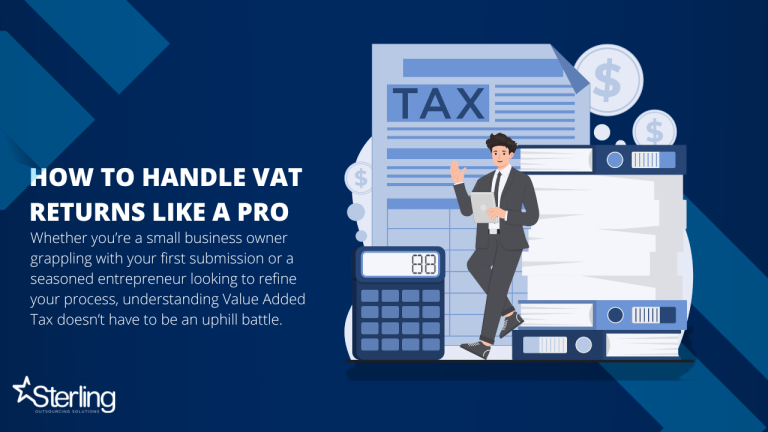How is Corporation Tax Calculated?
Calculating corporation tax can seem daunting, but it doesn’t have to be. The basic formula for calculating your company’s corporation tax liability is straightforward.
It would help if you determine your taxable profits. This involves subtracting allowable expenses and deductions from your total income. These expenses could include salaries, overhead, rent, and other legitimate business expenses.
Once you have calculated your taxable profits, apply the current corporation tax rate to this figure. Currently, the primary corporation tax rate in the UK is 19%. However, it’s worth noting that different rates depend on your company’s annual profit thresholds.
It’s essential to stay updated with any changes in legislation or adjustments made by HMRC, as these can impact how much corporation tax you owe. Keeping accurate records and a solid understanding of what constitutes taxable income will help you calculate your liability correctly.
Calculating corporation tax involves determining taxable profits by deducting allowable expenses from total income and applying the relevant corporate tax rate. Seeking expert guidance is crucial for accuracy and compliance with HMRC guidelines.
Eligibility and Registration for Corporation Tax
When starting a business in the UK, understanding your obligations regarding corporation tax is crucial. You will likely be subject to corporation tax if you’re running a limited company or any other type of organisation that generates taxable profits.
To determine whether your startup needs to register for corporation tax, ask yourself if your business is incorporated. If the answer is yes, then registration is necessary. It’s important to note that even if your company isn’t currently making profits, you must notify HM Revenue and Customs (HMRC) and complete the relevant registration forms.
Once registered for corporation tax, you’ll receive a Unique Taxpayer Reference (UTR). This reference number should be used whenever you communicate with HMRC regarding your taxes.
Navigating the complex world of corporation tax may seem daunting at first, but with proper guidance from corporate tax advisors or outsourcing UK corporate tax return services, managing these matters can become much more manageable for startups like yours. So don’t hesitate to seek professional assistance when needed.
By taking care of eligibility requirements and completing the necessary registrations promptly, startups can ensure they remain compliant with HMRC regulations while avoiding unnecessary fines or penalties. Stay organised and keep track of important deadlines – it’s just one less worry as you focus on growing your business!
Important Deadlines and Filing Requirements
Knowing when your accounting period begins and ends is essential, as this will determine your corporation tax deadline. Typically, the deadline for filing your company tax return falls 12 months after the end of your accounting period.
For example, if your accounting period runs from January 1st to December 31st, you must file your company tax return by December 31st of the following year.
To file your corporation tax return online in the UK, you need a Government Gateway account and access to relevant financial information such as profit and loss statements or balance sheets. It’s advisable to keep accurate records throughout the year so that compiling this information for submission becomes a smooth process.
It’s vital to calculate how much corporation tax you owe accurately. This involves considering any deductions or reliefs applicable to startups, like Research and Development (R&D) relief or Annual Investment Allowance. Failure to meet these deadlines can result in hefty penalties imposed by HMRC. Therefore, ensuring the timely submission of all required documents is paramount for responsible corporate governance.
Navigating through all these regulations can seem daunting at first, but seeking professional assistance from experienced corporate tax advisors or outsourcing UK corporate tax returns can relieve some of this burden. These experts have an in-depth understanding of taxation laws and stay up-to-date with changes introduced by HMRC regularly.
Deductions and Reliefs Available for Startups
Deductions and reliefs can be valuable for startups looking to minimise their corporation tax liabilities. By taking advantage of these opportunities, businesses can retain more profits and reinvest them into growth.
The research and development (R&D) relief. This allows companies to claim tax credits or deductions on qualifying R&D activities, such as developing new products or processes. Startups engaged in innovative work should explore this relief as it can significantly reduce their tax burden.
The annual investment allowance (AIA). This scheme enables businesses to deduct 100% of qualifying capital expenditure from their taxable profits up to a specific limit. It incentivises startups to invest in assets like machinery, equipment, or vehicles needed for business operations.
Losses incurred during the early years of a startup’s journey can also be utilised through loss relief provisions. These losses can be carried forward and offset against future profits, reducing overall tax liability once the business becomes profitable.
Entrepreneurs’ relief allows eligible individuals who dispose of all or part of their business assets to pay a reduced capital gains tax rate on those disposals. This benefit encourages entrepreneurship by rewarding successful business owners when they decide to sell or exit their ventures.
It’s worth noting that specific conditions and criteria are associated with each deduction and relief mentioned above. Therefore, seeking advice from corporate tax advisors or outsourcing UK corporate tax return services would ensure that your startup maximises its benefits while remaining compliant with HMRC regulations.
By carefully navigating the deductions and reliefs available under corporation tax rules, startups can optimise their financial position while fueling growth within the competitive landscape.
Common Mistakes to Avoid with Corporation Tax
While navigating the world of corporation tax can be complex, startups need to stay on top of their obligations and avoid common mistakes. Here are some pitfalls to watch out for:
-
Late filing
Please complete all deadlines for filing your corporation tax return to avoid penalties and interest charges. Make sure you have a clear understanding of the deadlines and allow ample time for preparation.
-
Incorrect calculations
Errors in calculating your taxable profits or claiming deductions can lead to your corporation tax liability inaccuracies. Take the time to double-check all calculations and seek professional advice if needed.
-
Inadequate record-keeping
Maintaining accurate records is crucial when completing your corporation tax return. Keep track of all financial transactions, expenses, and income meticulously throughout the year.
-
Ignoring reliefs and allowances
Startups often overlook valuable reliefs and allowances, such as research & development (R&D) relief or capital allowances on equipment purchases. Familiarise yourself with these opportunities that could reduce your tax liability.
-
Failure to consider transfer pricing rules
If you have international operations or transactions with related parties outside the UK, ensure compliance with transfer pricing rules – which determine how prices should be set between connected entities – otherwise, you may face penalties.
-
Not seeking professional advice
Engaging corporate tax advisors or outsourcing UK corporate tax returns can save you time, minimise errors, optimise deductions, and ensure compliance with regulations tailored to startups.
By avoiding these common mistakes, startups can navigate through corporation tax smoothly while maximising benefits and minimising risks associated with non-compliance.
Remember that every business is unique, so it's always advisable to consult an expert who understands taxation laws applicable to startups and industry-specific considerations when managing your corporation taxes..
Get expert guidance at Star Sterling Outsource




